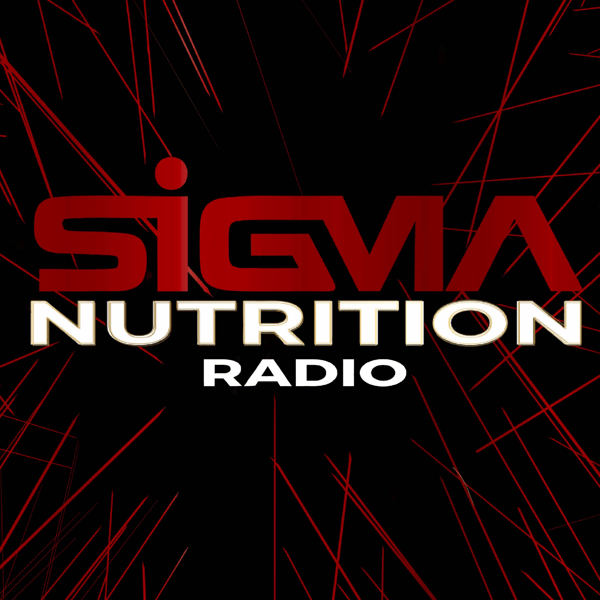Timing of Eating: Energetic Hypothesis (SNP32)
Sigma Nutrition Radio
Danny Lennon
4.8 • 626 Ratings
🗓️ 27 August 2024
⏱️ 11 minutes
🧾️ Download transcript
Summary
In the ongoing exploration of weight loss strategies, the timing of food intake has emerged as a fascinating area of study. While traditional advice often focuses on what we eat, growing evidence suggests that when we eat could also play a crucial role in weight management. This concept, known as chrononutrition, examines how our body’s internal clock influences the metabolic processes associated with food intake. Could adjusting meal times offer a new pathway to effective weight loss?
Recent research has delved into various hypotheses, including the energetic hypothesis, which proposes that meal timing can impact energy expenditure and intake. Studies have shown that consuming more calories earlier in the day could potentially enhance weight loss, independent of total daily calorie intake. This intriguing possibility has led scientists to investigate the mechanisms behind these effects, such as the thermic effect of feeding and diurnal variations in metabolism. Understanding these mechanisms could transform our approach to dietary planning and obesity management.
Dr. Alan Flanagan will be covering all the details in this episode, where he explores the latest evidence on meal timing and its impact on weight loss. He will dissect key studies, challenge prevailing assumptions, and provide a comprehensive analysis of the energetic hypothesis. Join us as we navigate the complexities of chrononutrition and uncover whether altering the timing of our meals can truly make a difference in our weight loss journeys.
This episode is a Premium-exclusive episode. Subscribe to Sigma Nutrition Premium to listen to the full episode.
Links:
- Subscribe to Sigma Nutrition Premium
- Enroll in the next cohort of our Applied Nutrition Literacy course
- Go to Sigma Nutrition Website
Transcript
Click on a timestamp to play from that location
| 0:00.0 | Hello and welcome to this Sigma Premium episode. I am Dr. Alan Flanagan. And today I will be circling back somewhat to a topic that I know |
| 0:24.6 | that we have addressed before, which is the timing of eating for weight loss. And this is something |
| 0:32.7 | that we had a previous episode where we discussed the findings from the Big Breakfast study, |
| 0:39.3 | a study published by Professor Alexander Johnstone and her group at the University of Aberdeen. |
| 0:45.3 | And that was published now nearly two years ago in October of 2022. |
| 0:50.7 | But I think at this point in the literature, we actually have a sufficient body of evidence |
| 0:58.3 | to make some more definitive conclusions in relation to this question. |
| 1:05.0 | That very much touches on aspects of chrononutrition or chrono metabolism. |
| 1:15.5 | Does the timing of food intake, or does a restriction on the period of daily eating, or does the frequency of eating, do these exposures that relate |
| 1:24.3 | to the timing of food intake across the day, have any place in obesity management |
| 1:32.4 | or in weight loss. |
| 1:34.6 | And this is what I want to do today by really distinguishing between the two primary |
| 1:44.0 | hypothesis-driven avenues of inquiry that have been |
| 1:48.1 | offered in relation to the relevance or potential relevance of timing of eating for weight loss |
| 1:53.4 | and or weight management. And broadly speaking, there have been two. The first is the energetic |
| 1:59.1 | hypothesis, and this holds that the timing of eating can alter |
| 2:05.7 | energy balance by either influencing energy expenditure or energy intake. |
| 2:11.6 | A core aspect of the energetic hypothesis of the timing of eating has been that there may be greater weight loss |
| 2:20.5 | observed with certain timing of eating interventions that's independent of total daily energy intake. |
| 2:28.4 | So that's one aspect to this that I want to deal with is the energetic component specifically related to |
| 2:36.0 | energy expenditure. And then there's an other aspect of the energetic hypothesis, of course, |
| 2:43.1 | which is energy intake. And now there is another hypothesis-driven avenue of inquiry in relation to |
... |
Please login to see the full transcript.
Disclaimer: The podcast and artwork embedded on this page are from Danny Lennon, and are the property of its owner and not affiliated with or endorsed by Tapesearch.
Generated transcripts are the property of Danny Lennon and are distributed freely under the Fair Use doctrine. Transcripts generated by Tapesearch are not guaranteed to be accurate.
Copyright © Tapesearch 2025.

